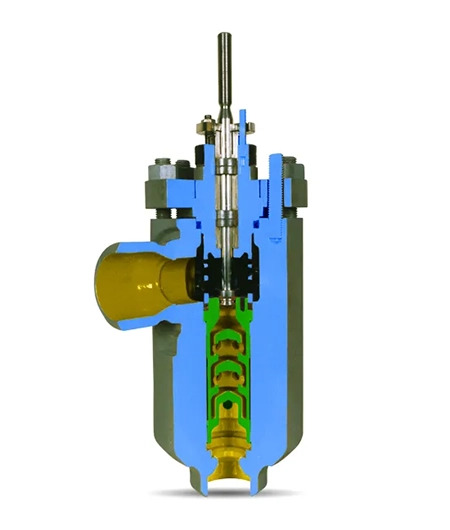When you’re running a business and need money to grow, picking the right financing can feel overwhelming. One of the biggest decisions is whether to take a secured loan or an unsecured business loan. Each option comes with its own perks and drawbacks. By the end of this post, you’ll understand both, plus a couple of other funding choices like revenue based financing and merchant cash advance funding, and you’ll be able to make a smarter decision.
What Is a Secured Business Loan?
A secured business loan means you pledge something valuable—like equipment, real estate, inventory, or another asset—as collateral. If you can’t pay back, the lender can seize that collateral. Because there’s something on the line, lenders often offer lower interest rates and higher loan amounts.
These loans are usually better for businesses with steady revenue, solid assets, and a lower tolerance for risk. If your business has something you’re willing to put up, a secured loan might give you access to more cash at better terms. To explore further, you can check out this guide: Is Your Business Loan Secured or Unsecured? A Simple Guide to the Difference, which goes into detail about both types with practical examples.
What Is an Unsecured Business Loan?
By contrast, an unsecured business loan doesn’t require collateral. Lenders decide based on your credit history, cash flow, and how strong your business is financially. Because the lender assumes more risk, interest rates are usually higher and maximum loan amounts are lower.
The upside? You don’t have to risk assets. Also, the process tends to go faster. If you need cash quickly and don’t have strong assets to pledge, an unsecured business loan might be the more practical path.
Other Funding Options to Consider
It’s not always a simple choice between secured vs unsecured. There are alternative funding types that might make more sense depending on how your business operates.
- Revenue Based Financing: You repay based on your revenue. In months when sales are strong, payments are higher. When sales slide, payments ease up. This gives flexibility. But over time, costs may be higher.
- Merchant Cash Advance Funding: You get a lump sum now, and pay it back through a percentage of future credit card or debit card sales. It’s fast. It’s convenient. But it’s also expensive. Using an MCA calculator helps you estimate what this funding will cost you in real terms.
Key Differences at a Glance
Here’s a comparison to help you see the trade-offs quickly:
| Feature | Secured Loan | Unsecured Business Loan |
| Collateral Required | Yes | No |
| Interest Rates | Lower, often more favorable | Higher, because risk is greater |
| Amount You Can Borrow | Larger amounts often possible | More limited |
| Speed of Getting Funds | Slower (asset appraisal, legal work) | Faster, less paperwork |
| Risk to Your Assets | You risk losing what you used as collateral | No risk to property, but late payments hurt credit |
When to Choose What
To figure out what’s right for your business, ask yourself:
- Do I have assets that I’m okay putting up as collateral?
- How quickly do I need funds?
- Can I handle higher interest costs in exchange for speed and less paperwork?
- Is my revenue stable, or does it fluctuate month to month?
If you own equipment or property and want lower interest rates, a secured loan could be smart. If you want speed and less risk of losing assets, unsecured funding or alternative options like revenue based financing or merchant cash advances might work better.
Working With a Business Loan Broker

A business loan broker can make your life easier. Whether you lean toward secured, unsecured business loans, or another form of funding, a broker helps you understand the fine print, compare offers, and pick the one that fits your goals.
They also often have insight into lenders you might not find by yourself. Using a broker doesn’t mean giving up control—it means getting help to make a more informed choice.
Pros and Cons of Each
Here are some quick pros and cons to think about:
- Secured Loan Pros: Lower interest, larger sums, possibly better terms.
- Secured Loan Cons: Risk to your collateral if payments fail, more paperwork.
- Unsecured Loan Pros: Faster, no collateral risk, simpler process.
- Unsecured Loan Cons: Higher interest, smaller loan size, tighter eligibility.
- Revenue Based Financing Pros: Flexible depending on income, you pay less during slow periods.
- Cons: Can be expensive over time, requires clear, consistent revenue tracking.
- Merchant Cash Advance Funding Pros: Fastest access to cash, little collateral needed.
- Cons: Steep cost, strict repayment tied to sales, sometimes confusing terms—use an MCA calculator to see the full picture.
FAQ – Quick Answers
Q: Can I switch from unsecured to secured?
Yes. If your business grows and gains assets, you might refinance or reapply with collateral to get better rates.
Q: Is revenue based financing safer than a loan?
It’s different. Safer in terms of collateral risk, but not always cheaper. You still pay more if your revenue picks up.
Q: How do I use an MCA calculator?
Input the advance amount, your sales volume, and estimated factor rate or percentage. It gives you an idea of how much total you’ll pay back.
Final Thoughts
Choosing between secured vs unsecured business financing isn’t easy—but it doesn’t have to be confusing either. Each option has trade-offs: risk vs speed vs cost. Add in revenue based financing and merchant cash advances, and you’ve got a spectrum of choice.
If you’re ready to explore what fits your business best, let’s chat. Contact us today to see tailored financing options. We can help you sort through secured and unsecured business loans—or see if revenue based financing or a merchant cash advance is better for your cash flow.
Reach out for a free consultation and find the business loan that works for YOU.


